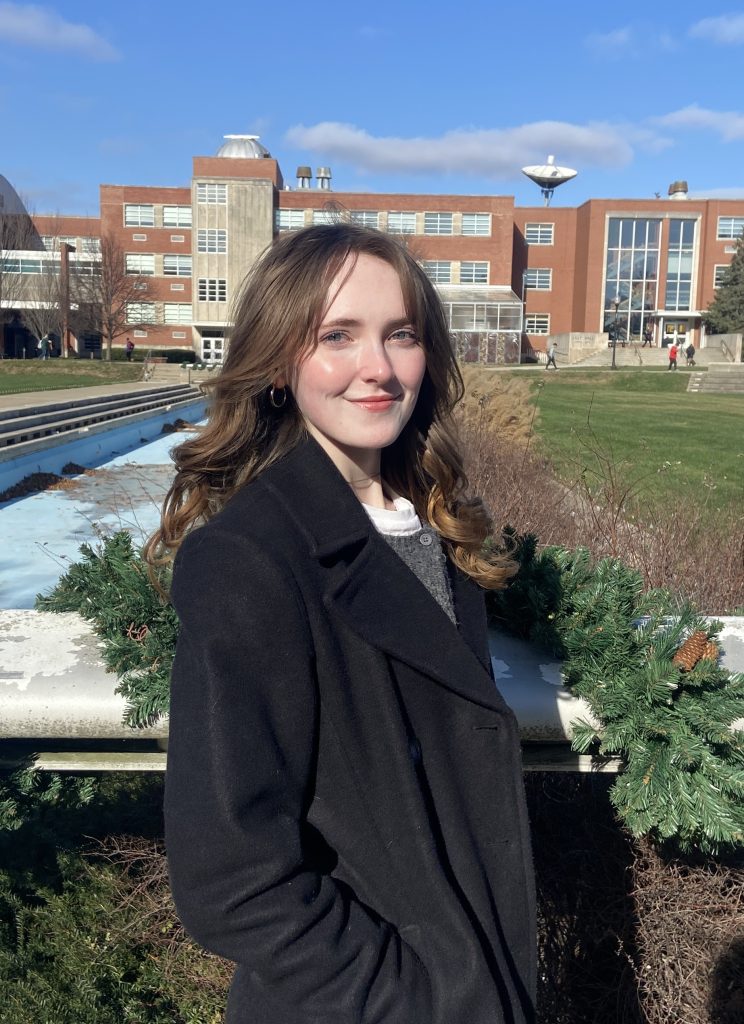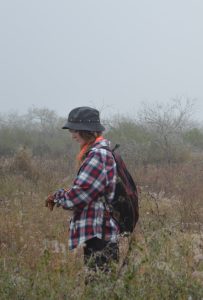
Makenna Mizell
- Expert Role: Field Expert
- Major: Human Biology
- Class: Graduate Student
- Hometown: Birmingham, Alabama
Why is this humanitarian work important to you?
As someone who has lived a privileged life, having the access to resources and opportunities as well as stability that other people around the world may not have access to, I feel a sense of responsibility when it comes to humanitarian issues. The privilege to attend university, to interact with a wide range of people, means an ethical obligation to use these advantages to help those that are less fortunate, especially those that have been lost along the border. Humanitarian work, to me, aligns deeply with values like empathy and equity that are extremely important to me. This work is about putting all preconceived notions aside in the pursuit of giving a voice to the voiceless, for the sake of not only their families and friends, but also for the person themselves. I believe that every person, regardless of who they are or where they are from, have a right to be heard and a right to give and receive kindness. If I can offer up even an ounce of my time, I feel a strong calling to do so.

What do you hope to gain from this experience?
From this experience I hope to gain a deeper understanding of how forensic anthropology can be used not only as scientific tool, but also as a vehicle for social change and humanitarian work. Beyond just a greater understanding of technical knowledge related to the field, I hope to develop a greater sense of empathy and cultural awareness in a culture that I am not as familiar with. Recognizing diverse backgrounds, historical contexts, and the personal narratives that shape the ways in which human remains are handled and understood is vitally important in human rights considerations. There is a delicate balance between scientific integrity and respect for the deceased and their loved onces that I hope to deepen my understanding and expertise in, while also reinforcing my committment to doing all I can to make a meaningful impact through the work I do.
What are some of the biggest challenges you will face while in Texas?
I think at the surface I am initially interested to see the way the climate will challenge me while in Texas. I am originally from Alabama, so I understand to some extent working in heat as well as humidity, but every state is so different that being able to adapt to the different climate and conditions is essential. Additionally, I’ll be the first to say that I’m not the biggest fan of bugs, so adapting to the different types of insects present will certainly be an interesting challenge. However, under the surface it is important to note that the local culture and community dynamics in the area we are traveling to will be different than what I am used to, but being understanding and open to differences will be essential to conducting effective humanitarian work. There is a heavy toll that working with human remains can bring, which I see being a possible challenge for myself to overcome. I want to work on ensuring my own self-care, while also maintaining professionalism in my time in Texas.
What’s one thing people probably don’t know about you until they’ve known you a long time?
In my undergraduate studies, I studied Japanese and consider myself to be a novice speaker. While I’ve never been to Japan, I hope to go someday and improve on my conversational skills!
When did you know you wanted to pursue human biology as a degree, and how did you become interested in forensics?
I’ve been interested in forensics for as long as I can remember, since I was a very young girl and watching shows and movies related to crime and mysteries with my parents. What started as a small fascination with solving mysteries grew into a deeper appreciation for how science can be used to bring clarity and justice to complex situations. When I first started my undergraduate studies, I majored in biomedical sciences, but found that I was missing the human connection that I wanted from my studies. This led to me switching to the anthropology program, which offered a four-field approach—combining biological, cultural, archaeological, and linguistic perspectives—and was a better fit for my passions. This switch allowed me to explore how human biology connects to the broader narratives of our shared human experience. After I graduated, I knew I wanted to continue my studies in a program that maintained a holistic approach to studies, but would allow me to explore my interests in forensic anthropology.
What advice would you give other students interested in pursuing a human biology degree at UIndy?
My advice for students interested in pursuing human biology at UIndy is to take advantage of the program’s interdisciplinary nature. Even before attending, explore the connections between anatomy, anthropology, and biology, and seek an understanding of the connection of the human body and the human experience. I also would recommend engaging in hands-on experience, whether that is field/case work or lab work or research, as these experiences can be both great learning experiences and essential for professional growth and development. Volunteer work is a great way to gain experience while giving back to the community, and can allow you to explore your interests while gaining foundational skills. Besides this, don’t be afraid to ask questions! If interested in the program, I would encourage reaching out to faculty and/or current/former students to gain a better understanding of what makes UIndy’s human biology program so unique as well as what to expect. The program can be rigorous at times, but it is so incredibly rewarding, and I am proud to be a student here.
What makes UIndy’s human biology program distinctive?
It’s a holistic program that integrates fields like anatomy, biology, genetics, osteology, and anthropology into one comprehensive program, allowing for a truly interdisciplinary education. This has allowed for people with a wide range of backgrounds and interests to channel their interests into their education while also learning about things they may never have had the opportunity to explore. Additionally, the program is hands-on, and students are able to immerse themselves in both research and casework which prepares them to enter the field, or continue their education, and more. The people at UIndy and in the human biology program, both students and professors, have a desire to learn and to grow, and this program highlights how no two people are exactly alike, and how these differences can make us better people, and scientists. In my cohort alone no two people are from the same place, which has provided the opportunity to grow and connect with people and learn their diverse histories in a way I would not have had I not entered into this program.